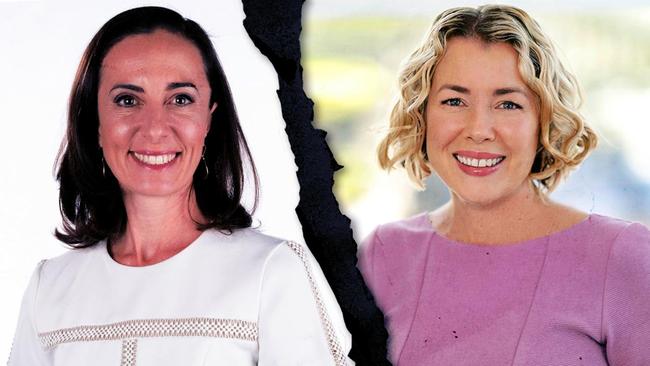Qld election 2020: Minor party vote collapse to hand ultra-marginal seat of Pumicestone to Labor
An incredible collapse in votes for one of the minor parties is set to cause a reversal in fortunes for the two major parties in a must-win marginal southeast Queensland seat.
Electorates
Don't miss out on the headlines from Electorates. Followed categories will be added to My News.
A former small business owner and senior policy advisor to Deputy Premier Steven Miles is on track to clinch a must-win seat from the LNP.
An exclusive Newspoll conducted by The Courier-Mail has revealed the LNP is set to lose the hotly contested electorate of Pumicestone, which they hold with a wafer thin .8 per cent margin.
Newspoll results show Labor and LNP poised to claw marginal seats off each other
Qld election 2020: Annastacia Palaszczuk sets date for decision on border reopening
ANALYSIS: Jackie Trad may go but it won’t be for long
The poll shows Labor’s Ali King will likely secure a comfortable victory on Saturday night, with Labor leading the LNP 54 per cent to 46 per cent on a two-party-preferred basis.
It follows a collapse in the One Nation vote, with the minor party polling at 9 per cent - down from the 23.3 per cent of votes it secured at the 2017 election.

The incumbent Liberal National MP Simone Wilson is standing down at this election after one term in parliament, with the Opposition drafting former Balonne Shire councillor Fiona Gaske as its candidate.
Ms King, who has worked as a senior policy advisor to Deputy Premier Miles, previously ran as Labor’s candidate in Mairwar at the 2017 election, where she narrowly lost to the Greens’ Michael Berkman.
Local infrastructure and the handling of the coronavirus pandemic have been key issues in the electorate.
Annastacia Palaszczuk still holds a sizeable lead as preferred premier among Pumicestone voters, however LNP leader Deb Frecklington has improved significantly compared to recent statewide opinion polls.
Ms Frecklington’s worst result was in Pumicestone with just 29 per cent of voters believing she would be the better premier compared to Ms Palaszczuk’s 55 per cent.

